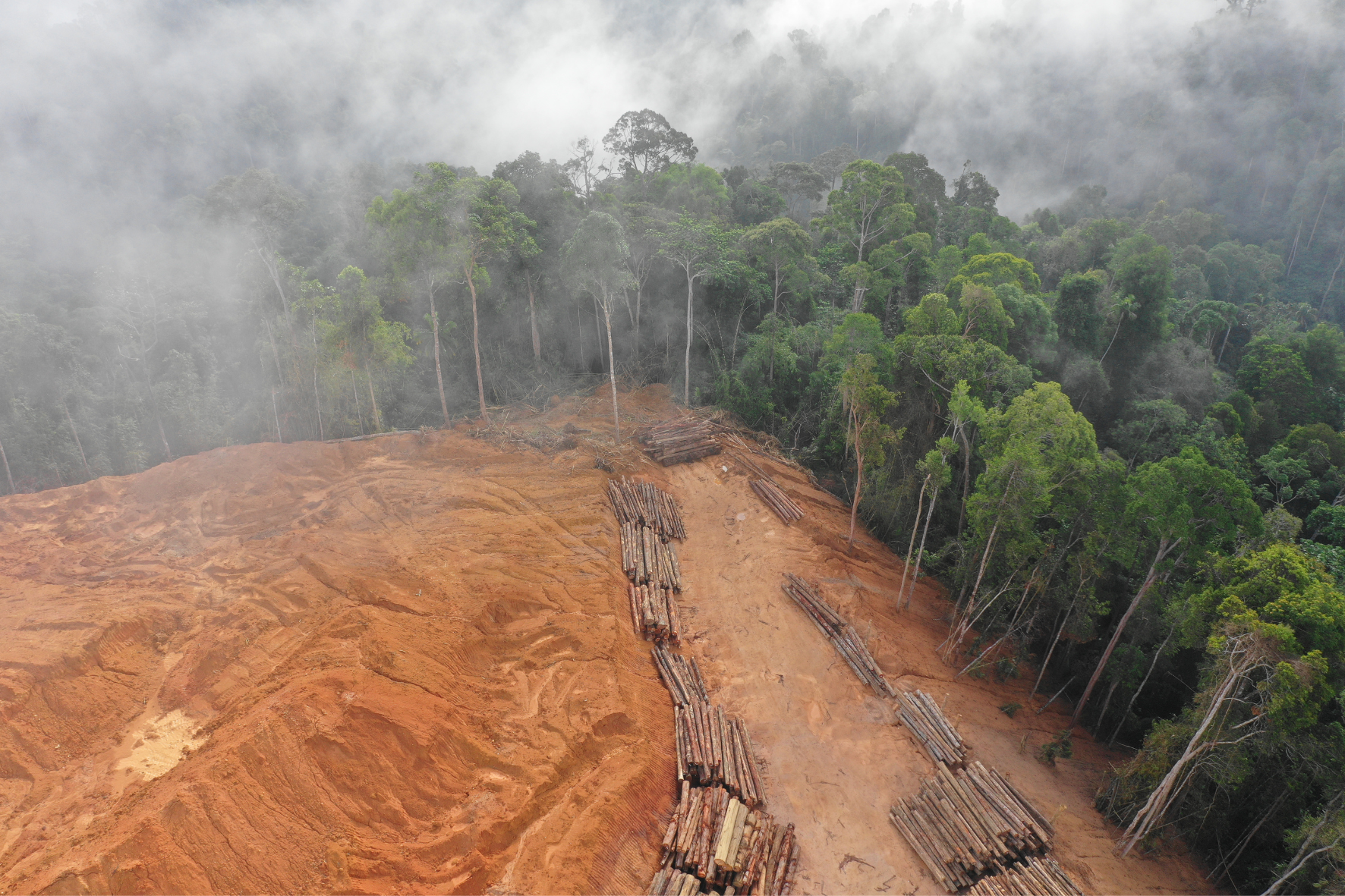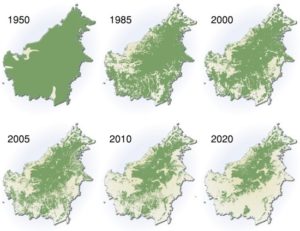
The topic of deforestation is now more than ever being discussed by the media and general public, but what exactly is deforestation and what are its causes?
Deforestation is the purposeful clearing of forested land (National Geographic, 2022). This process is proceeding at an alarming speed. Indeed, since 1990, the world has lost more than 4 million km^2 of forest (Food and Agriculture Organization of the United Nations).
 Deforestation of the Amazon
Deforestation of the Amazon
However, the biggest damage is nowadays being done in the tropical rainforests. During the year 2020 alone, the Amazon has suffered a loss of 21% of its green areas, which is a loss about the same size as Israel.
What causes deforestation?
Deforestation can occur either naturally, through wildfires or disease, but it is more often than not caused by human activities. The most common causes of deforestation are farming and grazing of livestock, mining, drilling, urbanization or logging operations. Indeed, wood can be used for manufacturing, as fuel and for construction.
A rather new cause of deforestation is an agricultural technique called “slash-and-burn”.
 Example of “slash-and-burn” agriculture
Example of “slash-and-burn” agriculture
Farmers burn down large portions of a forest and then use the ashes to fertilize the area. However, the terrain is fertile for a short period of time, after which farmers move on to another area and repeat the process. This technique might be effective in the short term, but the effects on forests are devastating and long lasting.
Why do people care about deforestation?
There are many reasons why scientists and activists worldwide are worried about deforestation since the results of the phenomen reach far beyond animals and humans.
First of all, there are some 250 million people who live in forests and savannah areas and who heavily depend on them. By cutting down trees, we are destroying their habitats and livelihoods without giving them a suitable alternative.
 Little girl from Waiapi tribe in the Amazon rainforest
Little girl from Waiapi tribe in the Amazon rainforest
Moreover, trees usually absorb carbon dioxide, which is otherwise released into the atmosphere and helps accelerate global warming.
Deforestation threatens biodiversity too, as nearly 80% of land animals and plants live in forests (National Geographic, 2022) and are thus at risk of extinction.
 Orangutans walking through the ruins of a forest
Orangutans walking through the ruins of a forest
More recently, scientists found a link between deforestation and infectious diseases. Indeed, the loss of habitat for many wild species, means that more animals are forced to live closer to humans, making it easier for diseases to jump from wildlife to humans.
How can you contribute to slowing deforestation?
Many are the organizations that are trying to preserve existing forests and restore the damaged areas by reforesting (planting new trees) and rewilding (restoring the whole ecosystem). Additionally, there is an ongoing fight against illegal mining and logging.
For example, Tohper White has recently come up with a way to use old cell phones to monitor chainsaws, while Brazil conservationists are rallying to prevent the government from going back on forest protections. So one way of helping reforestation is showing support to these organizations that are already trying to slow and reverse the deforestation process.
On a day to day basis, it is important to reduce paper at all costs, either by avoiding paper products or by only choosing products from a sustainable-certified source. Be careful as many products that are branded “eco-friendly”, like paper straws and cups, are actually contributing to the problem.
You could talk to your local coffee shop and bar to ask for a change and provide them with more sustainable alternatives to paper straws. Indeed, a more sustainable option could be The Happy Turtle Straw, made exclusively from rice and tapioca. Find out how to become an ambassador here: https://www.thehappyturtlestraw.com/ambassadors/
Lastly, avoid all products that contain palm oil, as palm oil is another important cause of deforestation.
Educate yourself further here:
https://education.nationalgeographic.org/resource/deforestation/
deforestation-of-the-amazon-rainforest.html
https://www.nationalgeographic.com/environment/article/deforestation




